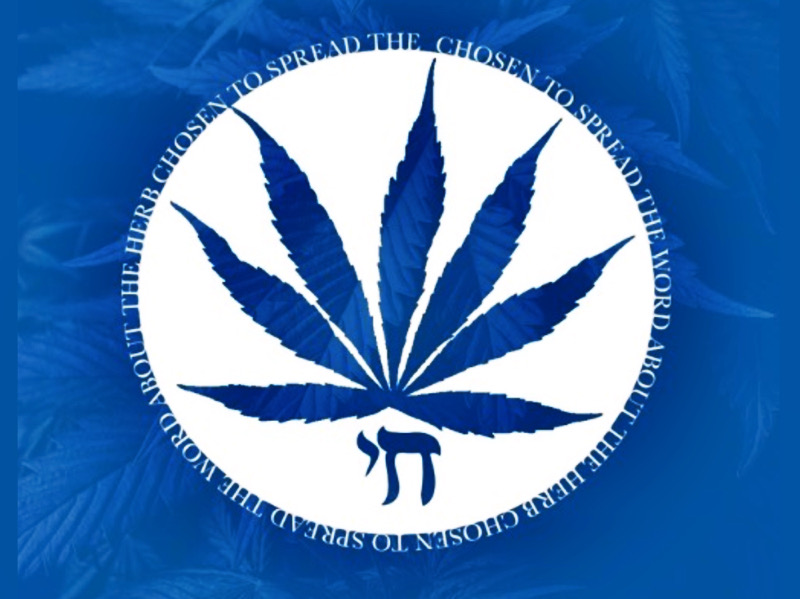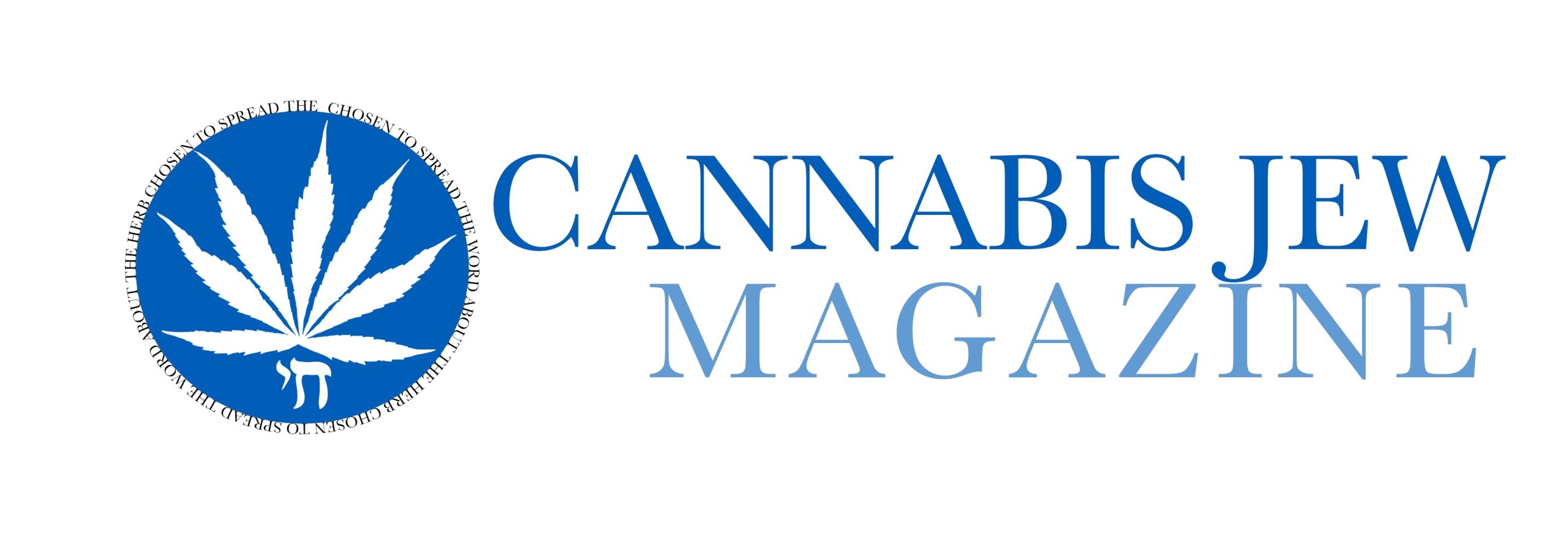As the global resurgence in antisemitic hate reaches every field and sector of society, cannabis advocates have been more frequently name-checking Canadian Jews who work in the industry and defaming them on social media—often as “genocidal terrorists’’—simply for being Jewish.
Jews have watched in horror as the antisemitic demand and genocidal fantasy for the destruction of Israel—home to half of the world’s Jewish population—has been adopted as a legitimate political position by liberal, progressive groups where Jews had previously felt welcome. For so many of us, it is also debilitating to watch as these groups reinforce the myth that Jews—as a whole—are “anti-Palestinian,” adding more fuel to the fire of the constant, excessive amount of antisemitic hate that has already become insufferable.
Earlier this week, I talked with Karina Bershteyn, co-Founder of ElionMED about the increasingly explicit expressions of antisemitic hate posted by cannabis advocates, such as the recent, Kanye-esque message shared by a young advocate who posted “Death to all zionists.”
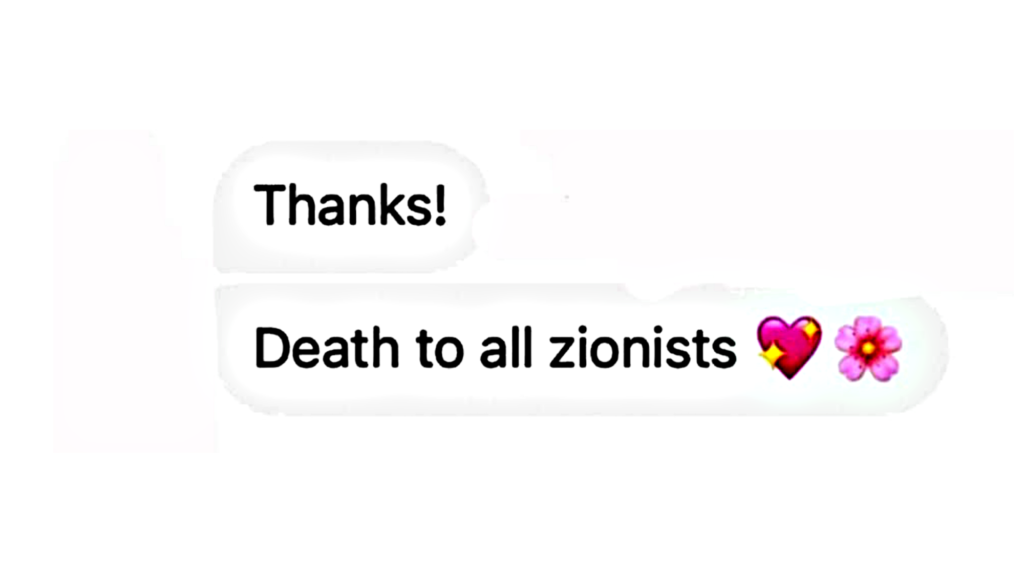
For Bershteyn:
“Seeing rising global antisemitism seep into our cannabis community has been a difficult pill to swallow, and one that cannot be left unchecked. It’s particularly upsetting to see this happening in what is meant to be such a progressive, forward-thinking industry. Antisemitism is racism, as Jews are a people, an ethnicity (who also have our own religion). Our diaspora has made us extremely diverse, there are so many different kinds of Jewish communities. Our industry needs to take racism against Jews just as seriously as racism against any other minority group. There is no space for hate in this beautiful industry we are building.”
Susan Chapelle is well-known as a consultant, healthcare policy and strategy expert, and OG Cannabis Jew who has been regularly called out and insulted on social media by cannabis advocates for identifying as Zionist, or someone who supports the right for Israel to exist as a sovereign nation, built at the same time as Egypt and Jordan. She shared one of these recent posts with CJM, published here in part:
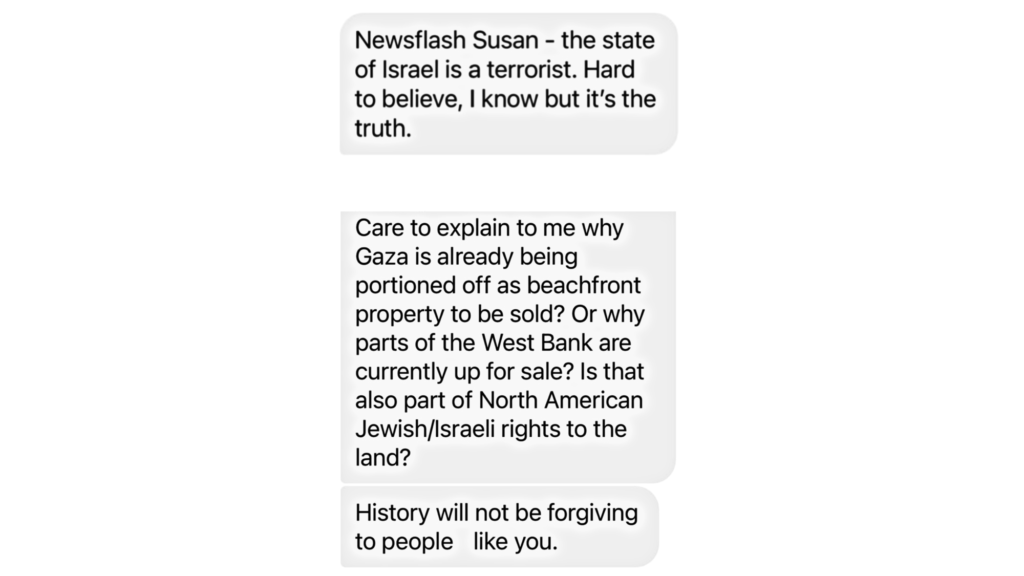
Although the statements in this post are patently false, the harm of it cannot be reduced to “misinformation,” since it is also antisemitic and emotionally abusive to judge Zionists as the evil antagonists of history, and to cast the nation of Israel—the only Jewish state—as a “terrorist.”
I’ve written about these kinds of statements as “cultural gaslighting,” since we are still tweaking and in mourning from the Hamas massacre, kidnapping and genocidal rape of Jews on October 7th, 2023. We are also anguished about the condition of those still held hostage by the actual terrorists who slaughtered 1,200 Jews to provoke a war on their own people.
Chappell shared some of her pain and confusion about being treated this way by people in the cannabis community:
“My family are Holocaust survivors. Many of us live in Israel. I was born a Zionist because there are only immediate relatives who survived WWII. My dad always taught us that Jews needed a home because of global security.
The hate has been daily. After being one of the only Jewish politicians in BC, I have tough skin. I’ve experienced antisemitism in politics. [But] October 7th shook me to my core.
I wonder how we got here again. Since 1947 we have tried to make peace with people who not only do not want peace, but who call for the genocide of the Jews in their 1988 mandate (Hamas).
I felt at home in the cannabis industry until my last workplace, where I was warned about an antisemitic CEO by the person who held the VP Ops job before me.
I am now back working in healthcare and teaching neuroscience to manual therapists. Every day someone comes in and complains about Israel and the Jews. I have to keep my mouth shut. I fear losing my practice for supporting my faith.”

It’s hard for Jews to convey the psychological pain of posts that betray the inability of so many people to empathize with Jews or Jewish suffering—at all. Instead, we are blamed for being attacked, and the moral depravity of this position seems lost on just about everyone which—from our position as a remnant of white supremacist genocide—makes everyone sound like Nazis.
Part of the problem is how the industry itself has responded to October 7th, specifically, the polite, nearly total disinterest in offering even a mild statement of support to the Jewish community in the aftermath of the worst violence suffered since the Holocaust. This silence is especially deafening in the cannabis industry, which—as I’ve mentioned— owes its existence to Israeli ingenuity, innovation, and culture. Even worse, it has led to a climate permissive of antisemitic harassment in which Jews don’t feel safe.
Another recent example of overt antisemitic hate occurred on the Instagram channel for High Buds Club—a community led cannabis marketing platform founded by Jamie Lipowitz—in an ALL CAPS post that stated:
“NO AMOUNT OF FREE CANNABIS IS WORTH SUPPORTING A ZIONIST. JAMIE LIPOWITZ–FOUNDER OF HBC IS A SELF PROCLAIMED ZIONIST, SUPPORTING GENOCIDE IN GAZA.”
Posts like this that are designed to humiliate Jews in the cannabis sector and hurt their businesses continue to proliferate in the chasm opened up by the silence of non-Jewish colleagues who, presumably, would strongly object if Black people in the cannabis industry were being harassed, attacked, and held accountable for the actions of an African country.
The apparent double-standard and normalization of anti-Jewish hate speech in public cannabis forums has led many Canadian Jews to describe the situation as “psychotic,” as we are left to defend ourselves against the leftists who have joined the fascists in their view of “The Jews” and “Zionists” as the “real problem” that can only be solved with a “final solution” achieved through the degradation, dispossession, and destruction of Jews.

The anti-Jewish vitriol hasn’t been confined to social media as Jews are also being harassed at cannabis expos; subject to insults, derision, and accusations simply for being Jewish, or Israeli. At the recent CannExpo in Toronto, the young cannabis advocate made notorious for their genocidal call “Death to Zionists!” created a hostile environment that made many Jews feel unsafe. When the advocate was given a platform to deliver a seminar and answer questions from participants, they were asked to account for their hate speech by Rob Cherry, Vice President of Merchandising and Commerical Planning at OEG Inc. Citing their online provocation to kill Zionists, Cherry asked them why they would say such a terrible thing to this community.
Instead of responding the advocate ran away to find security, apparently in an effort to decry the presence of “the Jew” and demand that he leave. Instead, the advocate was asked to leave due to their racist hatred of the Jewish community. In line with their general “up is down, down is up” perspective on things, the advocate proceeded to complain on social media about being targeted by Jews at CannExpo due to their “racist” ideology. Their post received likes and provoked more condemnations of the Jewish community from cannabis advocates who sympathized with their story about the difficulty of being around Jews.
Earlier this week I reached out to Cherry to ask about his motivations for speaking up on behalf of the Jewish community:
“People are entitled to their opinions, but inciting hate speech is not OK. The double standards that exist in our society with respect to antisemitism are outright shocking and have got to stop. Why do some people seem to think it’s OK to say things like ‘Death to Zionists’ on public forums, but would never think to write ‘death to gay people,’ or to African Americans, Asians, First Nations, etc.? I will always stand up for what’s right and I hope others do as well. Not standing up for what’s right and protecting our rights and freedoms per our charter of human rights can have devastating societal consequences.”
Canadian Jews are suffering from an unprecedented amount of antisemitism that has been adopted by leftist groups as a sanctimonious mission to isolate, humiliate and degrade us as the “problem” in their twisted, revisionist account of the Hamas massacre, torture, rape and kidnapping of Jews and non-Jews as a valid form of “armed resistance.” We are not safe and cannot escape the harm of this emotionally abusive campaign, even in the cannabis community.
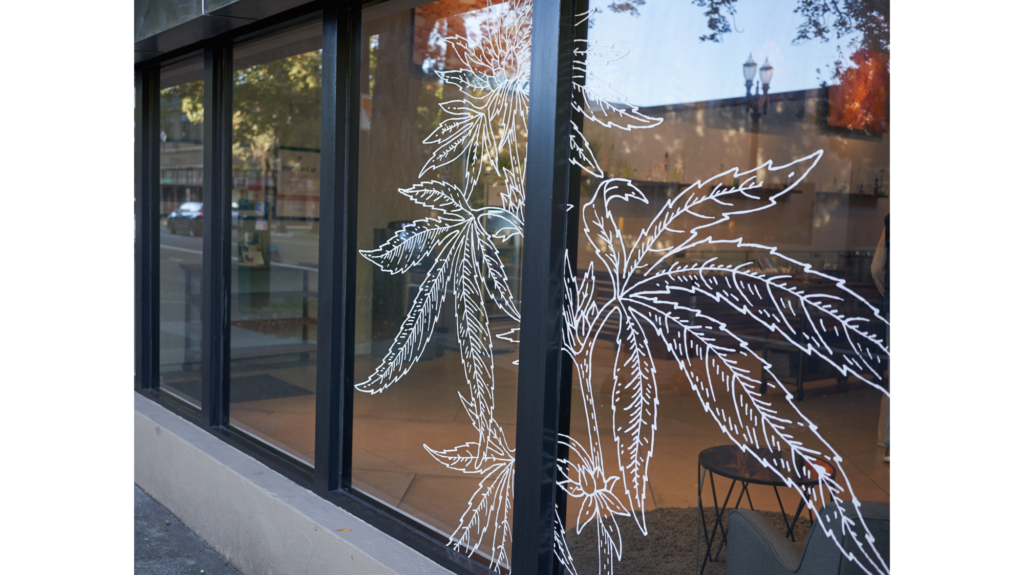
For this reason, the industry needs to take stock of the situation instead of ignoring it, hoping that the virulent antisemitism being expressed in the cannabis sector simply goes away. To ensure the safety and comfort of all participants at cannabis expos, organizers need to create a set of guidelines for participants that must be followed in order to be welcome there.
Such guidelines should include a ban on displaying national flags of any kind, which—in the current climate—serve to trigger people and provoke antisemitism. Further, organizers need to decide if cannabis advocates who spread misinformation in order to incite and justify antisemitic attacks are actually welcome at their events.
Creating a minimal set of standards in an effort to make clear their opposition to antisemitism will help to protect the Jewish community at this moment of extreme vulnerability when we face hatred, threats and accusations on a daily basis. This problem is not going away any time soon, and must be confronted in order to create an environment modeled on the ethos of the cannabis community to promote peace, healing, love and respect.
If we neglect to create standards of behavior that ensure hate speech will not be tolerated in the cannabis space, then we will exacerbate the problem and the marginalization of the Jewish community at this terrifying moment in history when cannabis professionals are inciting Jew hatred as part of their “advocacy.”
However, in order to actually confront and oppose the resurgence of antisemitism, the cannabis industry needs to include the Jewish community in programs and initiatives about diversity, equity and inclusion, and cannabis organizations that promote the empowerment of minority groups in the cannabis sector must include the Jewish community in their concerns, programming and advocacy.
Unfortunately, most cannabis education programs do not provide essential context for Jewish contributions to cannabis history. Without it, students are left to fall back on well-worn stereotypes to explain why Jews have historically been at the forefront of cannabis research and advocacy; this perpetuates misconceptions and anti-Jewish bias.
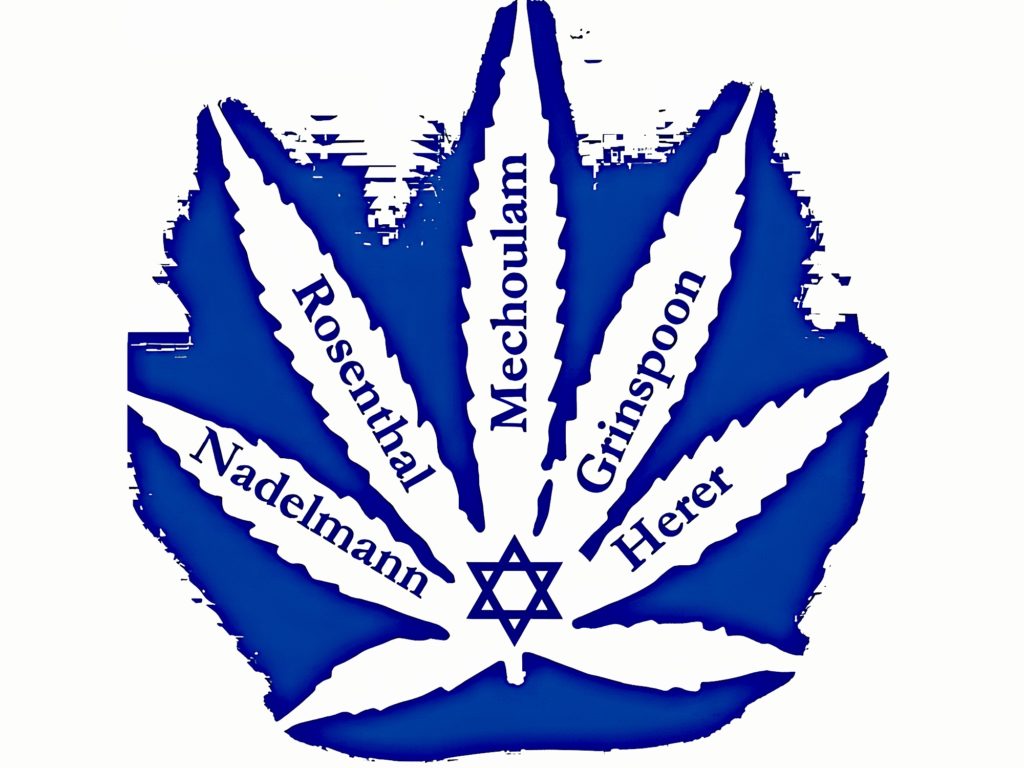
In order to combat antisemitism in the cannabis sector and help professionals respect and connect with Jewish clientele—including observant Jews and Israelis—CJM just launched The Jewish Relation to Cannabis, an online course designed to enhance cultural sensitivity toward all Jewish communities, available with an annual “Yeshiva” subscription to Cannabis Jew Magazine.
The proliferation of antisemitic hate in the cannabis community is made possible by the lack of Jewish representation in mainstream cannabis culture and the polite silence of those who do not want to alienate those “advocates” who are passionately invested in publicly denouncing, humiliating and shaming Jews for being Jewish. The current situation isn’t tenable, and the cannabis industry needs to take proactive measures in order to reverse the rising tide of antisemitism that threatens all of us, and the values that inform our commitment to increasing access to medical cannabis.
In order to stay connected with the Canna-Jewish community, sign up to receive Canna-Jewish News delivered right to your inbox. To learn more about the role of cannabis in the Jewish tradition, check out our new online course The Jewish Relation to Cannabis, sold with the Yeshiva subscription to Cannabis Jew Magazine.
